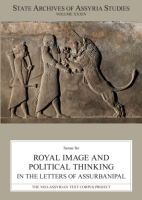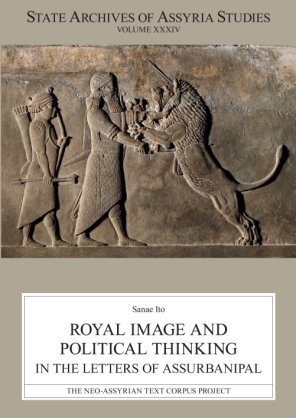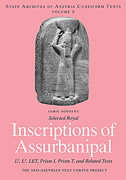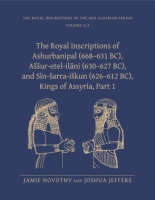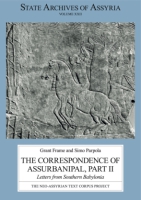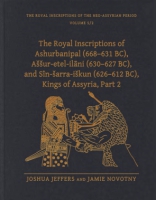Royal Image and Political Thinking in the Letters of Assurbanipal
Sanae Ito
Assurbanipal, the last great king of the Assyrian Empire, ruled from 668 BC until at least 630 BC. Although he spent four years suppressing a revolt by Šamaš-šumu-ukīn, his older brother and the king of Babylon (667–648 BC), Assurbanipal’s reign was much longer than the reigns of his predecessors, and he controlled almost the entirety of the ancient Near East.
- Description
- Bio
- Table of Contents
- Sample Chapters
The correspondence of Assurbanipal constitutes an essential resource for knowledge of his reign. It consists of 345 letters: 100 letters from Assurbanipal (the so-called royal letters) and 245 letters addressed to him. Assurbanipal’s royal letters deal with political, military, and diplomatic matters from the king’s point of view and in his own words. The aim of this volume is to determine the image that Assurbanipal attempted to convey in his letters and to investigate the ways in which he utilized this image to advance Assyrian policies. Most of his royal letters were written during the revolt and its aftermath and were sent to Babylonia, Elam, and the Sealand, regions that were deeply involved in the revolt. Since the most common recipients of the missives were citizens, Assurbanipal clearly considered it important to address the population at large when the revolt shook the foundations of the empire. He engaged in dialogue with adversaries and adherents alike, emphasized the favors he had performed for them, and described himself as a benevolent and merciful king capable of establishing justice, peace, and equality in the realm. He involved Nippur and Uruk in Assyrian military activities against rebels and settled a sibling rivalry between the governor of Ur and his predecessor. Assurbanipal continued a conciliatory policy toward Babylon even during the revolt in an effort to resolve the conflict peacefully. He tried to bring foreign countries under Assyrian control by treaties and sometimes exerted direct pressure using veiled threats. Some countries came under Assyrian rule on their own initiative to acquire military and political advantages from Assyria. Throughout the royal letters, Assurbanipal stressed his devotion to the gods and their support for his rule.
Sanae Ito is Assistant Professor at the University of Nagoya, Japan.
ABSTRACT
ACKNOWLEDGEMENTS
CONTENTS
ABBREVIATIONS
INTRODUCTION
PART I: PROLEGOMENA TO THE LETTERS OF ASSURBANIPAL
PART II: ASSYRIAN ROYAL IDEOLOGY AND ITS PRACTICAL APPLICATION
CONCLUSIONS
APPENDIX: Comparison of SAA 21 22, 23, 24, and 25
BIBLIOGRAPHY
INDICES
Download a PDF sample chapter here: Introduction
Mailing List
Subscribe to our mailing list and be notified about new titles, journals and catalogs.
